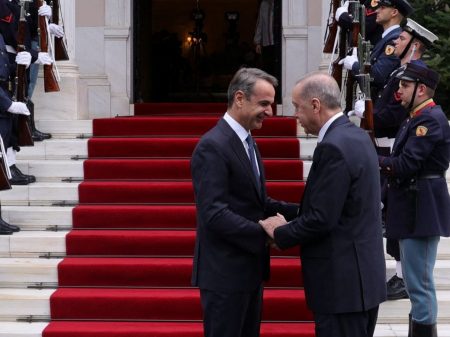Greece returned to the markets, despite the many expert predictions to the contrary.
And that occurred simply because the greatest fiscal consolidation since the Second World World took place and because an unprecedented change of financial structures, for the Western world, was attempted.
The markets did not congratulate Greece for political reasons, like some foolishly claim, but because they realized that the Greek economy is financially secure and because it has become one of the more open and liberal economies in Europe.
Furthermore, Greece is a democratic country governed by European law and institutions, with a strong currency and is a member of NATO; the potential political dangers are under control, despite the occasional explosions of populism and the peculiar, folk-like terrorism that defines it.
These are elements that true investors, huge transnational trade and manufacturing groups already appreciate, which is why they are literally preparing their landings for the near future.
Even the strict Merkel had only good things to say when she came to Athens and she was rather surprised when she found out that neophyte Greek companies are supplying Siemens with software and that BMW uses cotton processed by Epilektos in Farsala for their car seats.
Truth be told, incredible things happened in the crisis-stricken Greece over the past four years.
The financial consolidation and reform program that was implemented here was unique in its intensity and depth.
It damaged income and caused many loses, but it also carried the seed of the great change, the extensive reconstruction and shift in consciousness.
The current Greek economy is nothing like the one of 2008.
It is a different economy, as far as structures and customs go.
From a wasteful, closed and lazy it became austere, open, versatile, productive, as well as cheap, full of underrated values, which provide many advantages.
This results in becoming attractive, rather than repulsive, due to the opportunities it creates and possibilities that emerge.
Many more interesting things will happen in the near future which will confirm the great change.
On the 23rd of April Eurostat will confirm the exact amount and sustainability of the primary surpluses and on the 5th of May the Eurogroup will convene to begin a discussion on a new debt settlement, which will include a repayment extension of older bonds and reduction of their interest rate, so that the excessively-high public debt can be serviced and its sustainability ensured.
Combined, all of the aforementioned with create a new political landscape. The European elections will take place in an environment of expectations and financial recovery, rather than a climate of misery and untold suffering, as most assumed.
In other words, the times are changing and everyone ought to adapt. Those who can’t will simply lose and blame others, interests and their bad luck.
Antonis Karakousis
Originally published in the Sunday print edition





